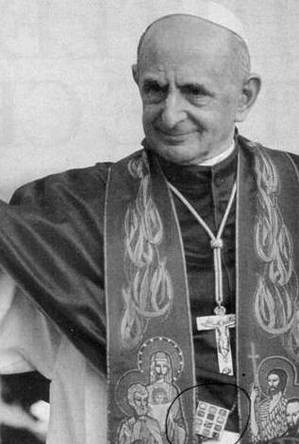 Today is the 45th anniversary of Populorum Progression (On the Development of Peoples) the 5th encyclical of the Servant of God Pope Paul VI. The 18,000 word letter deals with the socioeconomic issues of world sick building upon Blessed John XXIII's Mater et Magistra.
Today is the 45th anniversary of Populorum Progression (On the Development of Peoples) the 5th encyclical of the Servant of God Pope Paul VI. The 18,000 word letter deals with the socioeconomic issues of world sick building upon Blessed John XXIII's Mater et Magistra. Populorum Progressio was long accorded as the humanist manifesto because it examines and urges a tailored response of the educated and wealthier nations toward those who live in poverty (subhuman standards).
The Pope questions many things among them the ownership of land that is not used for the good of people in need, of unbriddled capitalism, the regulation of markets, foreign aid to nations, the development of internal programs to aid citizens rather than exporting natural resources to other nations and the right of governments to develop performing lands for the good of others. Pope Paul urges some controversial things: higher taxes for the rich, the expansion of aid programs, higher prices for products from third world nations, a just wage for workers, and the establishment of just interest rates for monies loaned. Freedom, charity, justice, and peace are given to all by God.
The letter states:
The ultimate goal is a fullbodied humanism. And does this not mean the fulfillment of the whole man and every man? A narrow humanism, closed in on itself and not open to the values of the spirit and to God who is their source, could achieve apparent success, for man can set about organizing terrestrial realities without God. But "closed off from God, they will end up being direct against man. A humanism closed off from other realities becomes inhuman."True humanism points the way toward God and acknowledges the task to which we are called, the task which offers us the real meaning of human life. man is not the ultimate measure of man. Man becomes truly man only by passing beyond himself. In the words of Pascal: "Man infinitely surpasses man."
The pope is looking for a charitable balance of social structures through dialogue, cooperation, education, freedom of peoples to make their own reasoned way, the true foundation of the family and youth, and the like. In 2012 we face similar challenges of social justice.
Interesting and controversial even today following the years of Marxist and Communist regimes was the Pope's acknowledgement that revolutionary actions would be needed to stave-off tyrannical leaders. Note that today Pope Benedict arrives in the Western hemisphere's longtime Communist nation of Cuba.


Leave a comment